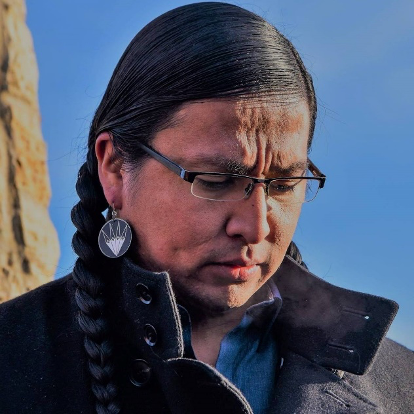Gathering for Indigenous Water Justice & Global Collaboration to be held on August 15-17
On August 15-17, MKW Co-conveners and partners will convene the Mni Ki Wakan (Water is Sacred) Summit, themed, “Indigenous Water Justice, Global Collaboration, & Dismantling Water Colonialism,” occurring in Rapid City, South Dakota, United States (mnikiwakan.org). The MKW Summit will bring together Indigenous Peoples, youth, and Indigenous-led environmental water organizations. The MKW Summit is a pillar of the Indigenous Water Decade that was first announced in 2016 at the United Nations Permanent Forum on Indigenous Issues (UNPFII). Since then, the MKW team has engaged in local/transnational partnerships, and initiatives, providing Indigenous water interventions at the UNPFII and the UN Expert Mechanism on the Rights of Indigenous Peoples in Geneva, Switzerland.
This year, the thematic focus of the MKW Summit uplifts global collaboration as an important intervention to the escalating water crisis many Indigenous communities are experiencing. Because water relates and connects us all, it is not enough to address escalating water issues in isolation from each other. Everywhere we look, we see Indigenous Peoples, youth, and grassroots movements taking water rights into their own hands to protect this sacred relative for future generations, responding to water inequities, and finding ways to increase access to clean drinking water. In the West, the largest Tribal Nations have adjudicated their water rights while remaining Tribes “now have limited prospects for securing substantial water rights” through legal avenues under the Winters Doctrine (Sanchez, 2020). More and more, we see Indigenous-led water organizations emerging in response to the escalating water crisis. The U.S. federal government is rolling out more water protections and infrastructure funding for Tribal Nations and communities. Meanwhile, water issues are still on the rise, exacerbated by global warming, climate change, and environmental racism. This is not an issue to be left solely up to the ‘experts,’ it is one that requires the collective movements and upstream thinking of Indigenous Peoples and youth.
For centuries, the theft of Indigenous waters gave rise to water colonialism and systemic inequities situating prominent colonial and Western water entities that now hold vast wealth, power, and resources (Robison et al, 2018; Sanchez et al, 2020). Today, they control the global dialogue around water policy, solutions, and decision-making while purporting to represent ‘all people,’ ignoring the history of water colonialism. In part, this has prompted many Indigenous Peoples and youth to launch Indigenous water justice movements for self-determination and to end water colonialism. Examples include the Kyoto Water Declaration, the Declaration on the Rights of Indigenous Peoples, and #NODAPL.
For too long, the voices of Indigenous Peoples and youth have been ignored. Yet they are the oldest water stewards in the world who maintain the longest-standing water governance ethics. It is high time to support Indigenous water justice, innovation, and global collaboration as critical interventions to the water crisis facing many Indigenous Peoples throughout the world. Today's escalating global water crisis calls for collective water innovations by Indigenous Peoples and youth who seek to go beyond what currently exists by imagining bold, unique, and previously untried possibilities that will help make the most difference for the future of water and all life.
Registration for the MKW Summit is now open. There is no registration fee for community members. The application for session proposals is open and closes on June 30. Go to mnikiwakan.org to learn more.
Sanchez, Leslie et al. “The economics of indigenous water claim settlements in the American West.” Environmental Research Letters 15, (2020): 1-15. DOI: https://doi.org/10.1088/1748-9326/ab94ea.
Robison, Jason et al. “Indigenous Water Justice.” Lewis & Clark L. Rev. 22, no. 841 (October 23, 2018): 901. DOI: http://dx.doi.org/10.2139/ssrn.3013470.
Author Info: Wakinyan LaPointe is a Sicangu Lakota citizen of the Rosebud Sioux Tribe and MKW Co-convener.
